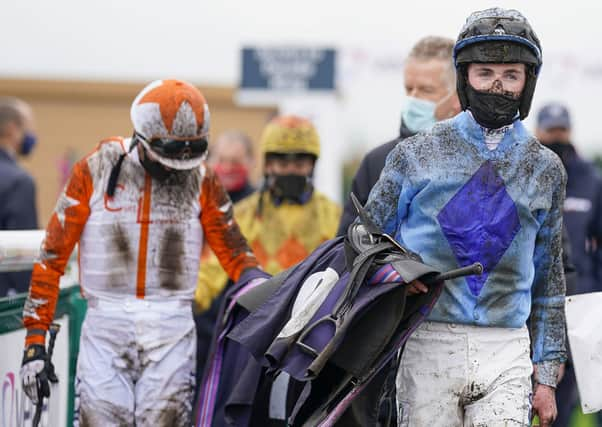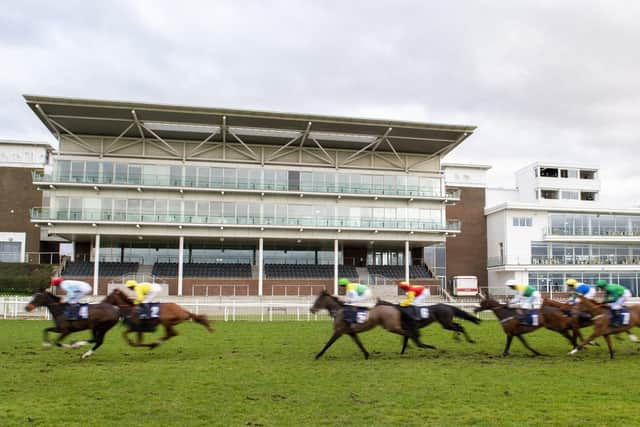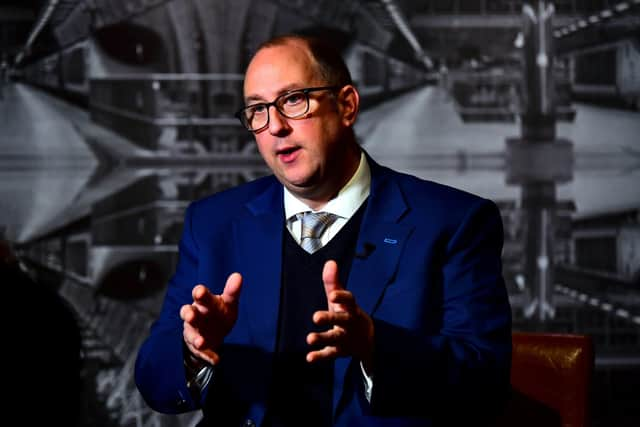BHA chief Nick Rust fears for future of some racecourses if spectators not allowed to return in 2021


Plans for spectators to attend sports venues from October 1 were placed on hold by Government last month because of rising coronavirus infections.
Speaking at Wetherby which hosts the prestigious Charlie Hall Chase fixture at the end of this week, Rust praised those who have enabled racing to “keep the show on the road” since the resumption of fixtures at the start of June – and stressed racing will continue to work with other sports to try to get crowds back as soon as possible.
Advertisement
Hide AdAdvertisement
Hide AdHe was speaking after research commissioned by Go Racing in Yorkshire, the umbrella organisation for the county’s nine tracks, estimated the loss of income to racecourses, and local economy, to be in the region of £115m as a result of spectators being forbidden to attend fixtures.


“With the exception of two pilot days, we haven’t had any spectators at racecourses, and more than 50 per cent of the sport’s revenue comes from spectators, so it’s hitting us pretty hard,” said Rust, who steps down at the end of 2020.
“We’ve managed to run more than 450 events behind closed doors since June 1, with no evidence of transmission of Covid.
“The sport has done superbly well, and the 17,000 people who work in it directly have followed a strict set of guidelines to help ensure we can keep the show on the road. The decision by Government, which we understand, to cease having crowds for the moment – and ceasing the pilots that we had in place back in August and September – is giving a bleak look for our sport over the next six months.
Advertisement
Hide AdAdvertisement
Hide Ad“If we don’t have a path back for spectators, racecourses who are clinging on through cost-saving measures and using Government help, are going to really struggle – and that is going to have a knock-on effect to our sport.


“We know of no racecourses that are going to close in the immediate future – but if we don’t have spectators in any meaningful way in 2021, we’re at strong risk of losing racecourses.”
The BHA board and its member bodies agreed earlier this month to take a united stance, after developing a single set of proposals for reforming the Levy.
A steering group is tasked with assessing all the options for Levy reform in light of Covid-19 and economic downturn.
Advertisement
Hide AdAdvertisement
Hide AdRust added: “Other countries have had advantageous policy on the funding from betting for a number of years.
“Our off-course betting was legalised in 1961 and was set up in a way that was less favourable than in Hong Kong or indeed our near neighbours in France and Ireland.
“Government has offered us help, and we have a three-step plan.
“One is working to bring spectators back to the racecourse; secondly we need some direct support (from Government) to help us bridge the gap for when spectators can return, and finally we’d benefit from a horseracing betting Levy review to make sure that it keeps up with the situation.
Advertisement
Hide AdAdvertisement
Hide Ad“Betting shops are unfortunately being closed in Tier Three areas, so our income is reducing there, and more people are switching to digital betting, which ultimately means that we receive less through each bet placed. We need to adjust the model to make sure that it’s up to date for today’s times.”
Middleham trainer Mark Johnston and his team are celebrating double Group One success in France.
Subjectivist put up a fine front-running performance to land the Prix Royal-Oak (French St Leger) at ParisLongchamp after the success of Gear Up in the Criterium de Saint-Cloud.
Gear Up’s success vindicated the decision to swerve the Group One Vertem Futurity Trophy at Doncaster and the colt will be trained with next year’s Epsom Derby in mind.
Advertisement
Hide AdAdvertisement
Hide Ad“Gear Up was one of six yearlings we bought for the Teme Valley syndicate, who wanted to buy a horse to go and win the Derby,” said Johnston’s son and assistant trainer Charlie.
“We’ve got a Group One-winning two-year-old now and it looks like the Derby is going to be his principal target for the first half of the year.”
Support The Yorkshire Post and become a subscriber today. Your subscription will help us to continue to bring quality news to the people of Yorkshire. In return, you’ll see fewer ads on site, get free access to our app and receive exclusive members-only offers. Click HERE to subscribe.